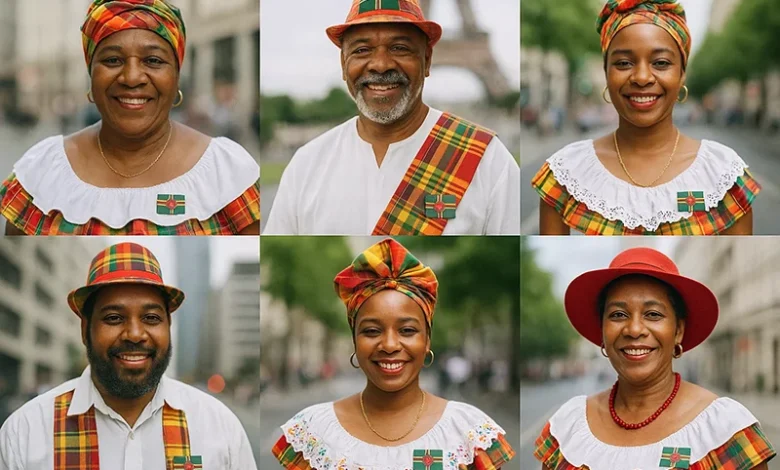Dominica Diaspora

The Dominica Diaspora refers to individuals of Dominican heritage who reside outside the island, forming a globally dispersed yet tightly connected community. Over the decades, this population has made significant contributions to Dominica’s development through remittances, cultural exchange, investment, and advocacy. The movement of Dominicans abroad began in earnest during the post-World War II period and has continued into the 21st century, evolving in size, purpose, and location.
Historical Background of Migration
Large-scale emigration from Dominica began in the 1950s and 1960s, driven by limited economic opportunities, political instability, and educational aspirations. The United Kingdom was a primary destination due to colonial ties, with a significant wave joining the wider Caribbean migration known as the Windrush generation. By the 1970s and 1980s, Dominicans also began moving in greater numbers to the United States, Canada, and other Caribbean islands such as St. Maarten, Antigua, and the British Virgin Islands.
Political events like the 1979 revolution, Hurricane David, and subsequent economic disruptions further encouraged outward migration. Each decade brought new challenges and opportunities. While official estimates suggest there are between 30,000 and 45,000 Dominicans currently living abroad, this figure only captures first-generation emigrants. When we consider second- and third-generation Dominicans, those born overseas to Dominican parents, and individuals who maintain cultural or familial ties to the island, the actual number of people identifying as Dominican abroad may exceed 300,000. This broader view reflects migration patterns dating back to the 1940s and the continuing strength of identity across generations.
Major Destinations and Demographic Trends
The United Kingdom hosts a long-established Dominican community, particularly in cities such as London, Birmingham, and Manchester. In the United States, cities like New York, Miami, and Boston serve as hubs, with active Dominican associations and churches. Canada also has growing populations in Toronto and Montreal. More recently, French territories like Guadeloupe and Martinique have seen increased movement due to employment prospects and language accessibility.
Generational shifts within the diaspora have created unique dynamics: first-generation immigrants often maintain strong economic and familial ties with Dominica, while second and third generations negotiate dual identities. Language, cultural expression, and memory of the homeland remain important aspects of Dominican diaspora life.
Economic and Social Contributions
One of the most visible impacts of the diaspora is in remittances. According to the Eastern Caribbean Central Bank, personal transfers from Dominicans abroad have consistently contributed between 7% and 12% of GDP since the 2000s. These inflows support family needs, education, housing construction, and local business ventures.
In addition to monetary contributions, diaspora Dominicans also:
- Form cultural groups and participate in events like Dominica’s Independence celebrations abroad.
- Advocate for disaster relief following hurricanes and other natural crises.
- Contribute to brain gain by returning home after acquiring skills overseas.
In many cases, Dominican nationals abroad assist in creating scholarship opportunities, sponsor village development projects, and offer professional mentorship. Organizations like the Dominica Houston Association, Waitukubuli Culture and Arts Network in Toronto, and Dominica Academy of Arts and Sciences have played important roles in bridging the local-global divide.
Political Engagement and Representation
The diaspora has also influenced Dominica’s political space. Though non-resident citizens do not vote in elections unless physically present, many still support parties financially and participate in online discourse. Some parties even campaign within diaspora communities during elections.
Efforts have been made over the years to formalize the role of the diaspora in governance. Proposals for diaspora voting, constitutional reform to recognize dual citizenship rights in policymaking, and even diaspora advisory councils have been discussed, though implementation remains slow.
Additionally, following Hurricane Maria in 2017, diaspora groups mobilized resources rapidly, donating medical supplies, funding generator systems, and establishing coordinated distribution efforts, often more quickly than formal state mechanisms.
The global presence of the Dominican people reflects not only a history of migration but also an enduring bond with the homeland. Part two explores education and cultural continuity, policy efforts for deeper engagement, the phenomenon of return migration, and emerging challenges.
Education, Youth, and Cultural Preservation
Education is a central pillar of diaspora engagement. Many Dominicans abroad maintain a deep respect for academic achievement and actively support educational causes back home. Scholarship drives, textbook donations, and virtual mentorship programs have been championed by diaspora associations, churches, and alumni groups in Canada, the United States, and the United Kingdom.
Younger generations born abroad are also being introduced to Dominican Creole, traditional dances, and folk music. Organizations such as Wai’tu Kubuli Caribbean Association in Europe and United Dominicans in the UK have hosted annual independence celebrations, storytelling workshops, and culinary events that maintain the island’s heritage.
Online platforms have become vital tools for passing down identity. YouTube channels, diaspora podcasts, and Facebook groups promote debates on culture, history, and contemporary issues. Virtual learning spaces allow youth abroad to connect with Dominica through language courses, history tutorials, and even live Q&A sessions with elders or educators from the island.
Diaspora Engagement Policies and Government Involvement
the Government of Dominica has taken steps to formally acknowledge and engage its diaspora. The Regional Integration and Diaspora Unit, created under the Ministry of Foreign Affairs, was intended to serve as a bridge for investment, communication, and policy feedback. While there is no dedicated diaspora council, successive governments have recognized the diaspora’s role in national development.
Key initiatives include:
- Investment Incentives: Non-resident Dominicans are encouraged to invest in housing and tourism through waived import duties on building materials.
- Cultural Diplomacy: Embassies and consulates frequently coordinate with diaspora groups to organize Independence Month events, promoting visibility abroad.
- National Day of Recognition: During Independence, the government regularly honors overseas Dominicans for philanthropic efforts or cultural preservation.
Yet critics argue that engagement is often symbolic and lacks long-term strategic planning. Proposals for remote voting, representation in the House of Assembly, and clearer legal frameworks for dual nationals have not yet materialized.
Return Migration and the Idea of “Home”
One growing trend is return migration, especially among retirees or second-generation Dominicans seeking cultural reconnection. Returning residents are eligible for customs duty exemptions on personal belongings, and many choose to invest in real estate, agriculture, or wellness tourism.
This movement is complex. Some returnees struggle to reintegrate due to differing social expectations, perceived disconnects with local institutions, or limited access to services matching their overseas standards. Nonetheless, others thrive, founding NGOs, opening businesses, or taking active roles in civic affairs.
A notable example is the Castle Bruce Agricultural Co-op, which includes members of the diaspora who returned and introduced permaculture techniques after training abroad.
Future Outlook and Challenges
Despite strong connections, the Dominica diaspora faces several challenges:
- Legal Ambiguity: Limited pathways for political participation and representation in public bodies.
- Youth Engagement: Second- and third-generation Dominicans may drift from cultural identity without active educational intervention.
- Data Gaps: There is no centralized registry of Dominicans abroad, making targeted engagement difficult.
- Unequal Influence: Some argue that wealthier segments of the diaspora receive disproportionate attention, overshadowing grassroots communities.
Looking ahead, improving bilateral relations between the state and its diaspora could involve establishing a Dominica Diaspora Commission, similar to models in Jamaica and Ghana. Creating formal repatriation plans, diaspora investment bonds, and scholarships co-funded by overseas groups may further cement the relationship.
The rise of digital connectivity and a more mobile, globally aware Dominican population suggests that the diaspora’s role in shaping the country’s economic and cultural future will only expand.




